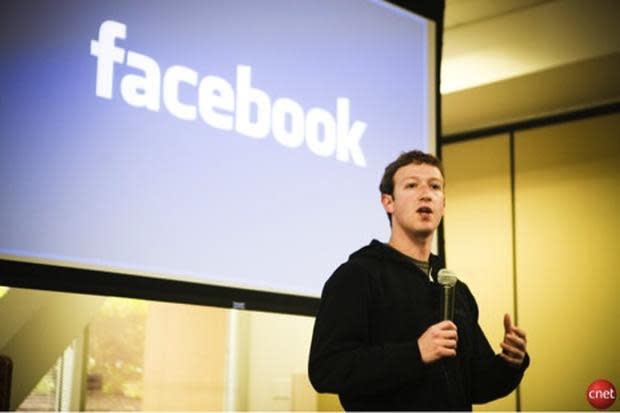The world's largest open-source company doesn't sell software

Red Hat is finally getting some competition. With Hortonworks going public at a $1 billion valuation, the title of "world's biggest open-source company" may finally be in contention.
Except that neither Red Hat nor Hortonworks is in serious contention.
Years ago, I argued that Google was the world's biggest open-source company. Today, that distinction goes to Facebook. While other web giants like Google, Twitter, and Netflix contribute a lot of open-source software, only Facebook delivers both open-source code and community at scale.
Going big on open source
Facebook has taken open source to its logical extreme. The company open sources everything: software, hardware, and know-how. In part, this is a way to attract developers to its platform, but it's also simply an expression of Facebook's DNA: share everything.
As for software, no one reaches the sheer volume of code that Facebook both releases and to which it contributes.
In 2014 alone, Facebook launched 107 open-source projects, up from 90 open-source repositories in 2013. This brings Facebook's total number of open-source projects to 225.
In addition to its home-grown projects -- to Apache Cassandra (NoSQL database) to Thrift (framework for scalable cross-language services development) to Apache Hive (data warehouse infrastructure built on top of Hadoop) and more -- Facebook actively contributes to a slew of external projects, including Apache Hadoop and MySQL.
On the hardware side, Facebook's decision to open source its data centers gets less media ink but has huge potential. Dubbed the Open Compute project, Facebook revealed all details necessary to companies building their own Facebook-like data centers.
Of course, the reality is that most companies aren't in a position to follow Facebook's data center lead.
While Microsoft has embraced Open Compute, as have Rackspace and IO, most companies simply can't. As Stanford University professor Jon Koomey posits, "If the customer is on the ball and is really driving down cost per compute, they should be receptive to what Open Compute offers. But this only happens in places where there is one owner of the data center and one budget, which is a minority of the enterprises."
The community glue
And yet... Facebook has shown a desire not merely to open code and hardware and throw it over the proverbial wall. To make open source truly effective, including Open Compute, it's critical that a contributor also engages with a vibrant, growing community.
As announced during its 12 days of open source, Facebook revealed that it now has more than 1,000 external contributors to its open-source projects. Of these 1,000 developers, 20% made five or more commits. In other words, a very significant percentage of Facebook's contributors aren't simply drive-by contributors: they're a part of the Facebook open-source family.
Again, as important as it is that Facebook release a lot of code and hardware design, it's much more potent when amplified by a large and growing third-party developer ecosystem.
And this is why Facebook is the undisputed open-source leader. No, it doesn't sell open-source software or related services in the way Red Hat or Hortonworks do. But it uses a strong foundation of open-source software and hardware to drive over $10 billion in annual revenue.
Sounds like a pretty good return on its open-source investment.

